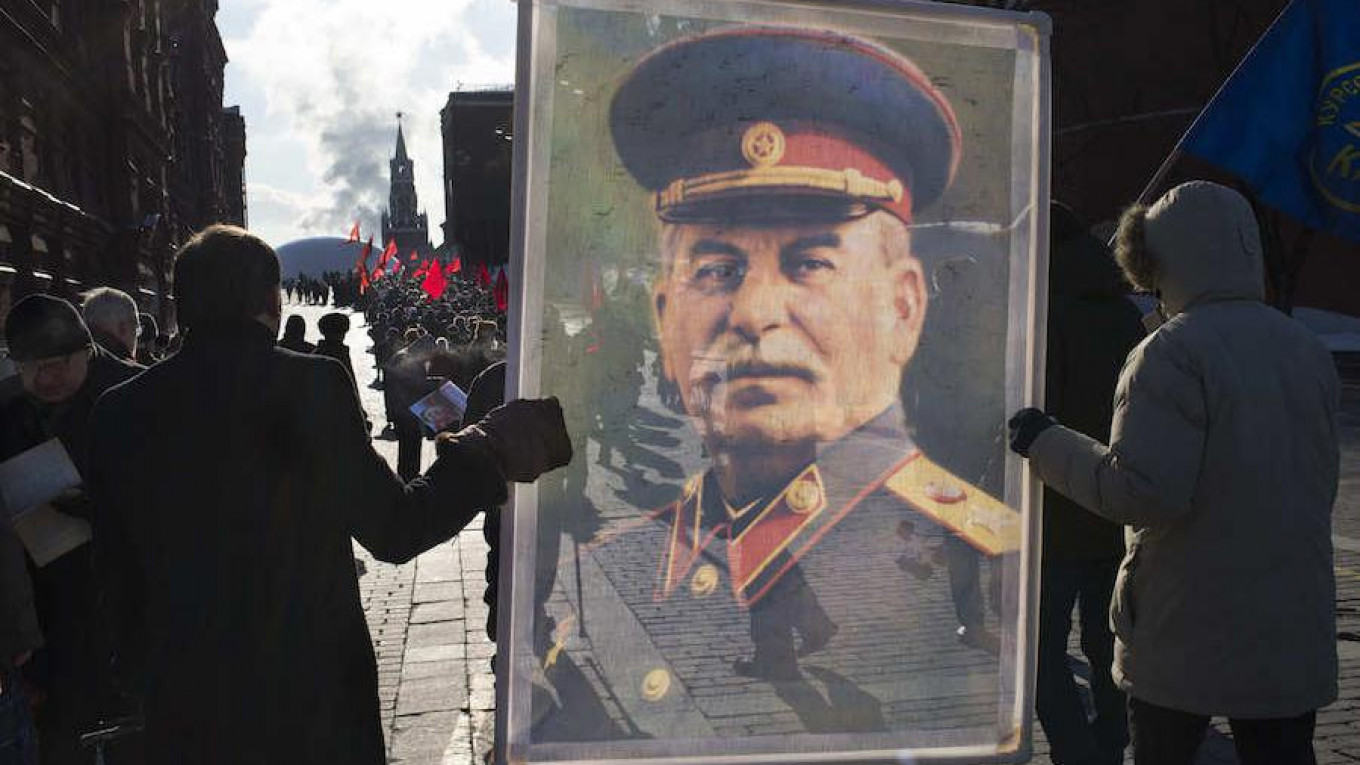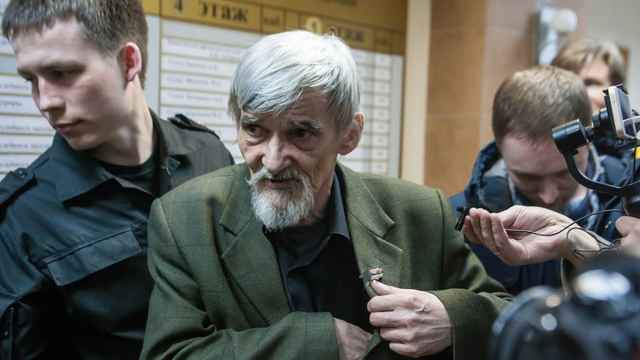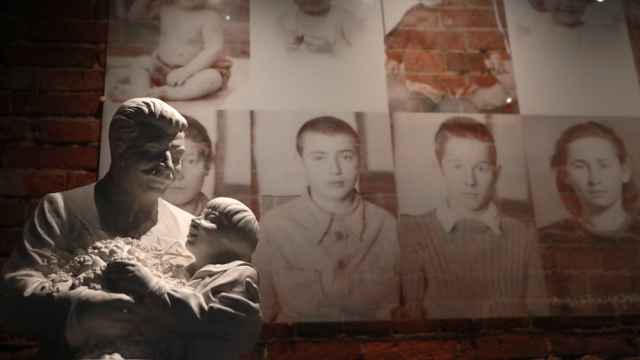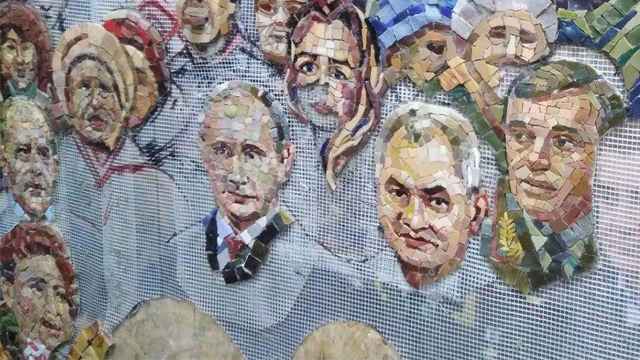Josef Stalin, a Bolshevik who assumed dictatorial powers over the Soviet Union in the late 1920s and ruled until his death in 1953, is Russia’s most popular revolutionary. Stalin's popularity as a historical figure is now at its highest point of the past 16 years.
Stalin is the country’s third most revered political leader of all time after Vladimir Putin, Russia’s current president, and Leonid Brezhnev, the Communist Party general secretary between 1964 and 1982.
Despite questionnaires containing the phrase “historical figure,” it is not the Stalin or Brezhnev of history whose name people check when they make their choice. Those are names, or memes, that carry a certain message rather than historical personages. It may be hard to believe, but in their minds, most Russians associate Stalin with an orderly and stable governance.
Russians are not mad. It is just that for a number of reasons (we will come to the reasons later) the meme “Stalin” signifies law and order. People do not choose Stalin the murderous dictator; they choose an imaginary leader who can put things in order. “When tensions rise, people think about the kinds of leaders they believe would be tough and live up to the situation. In more liberal times these attitudes recede,” says the sociologist Alexei Grazhdankine.
Note that Putin’s name is also found among those of the political leaders of all time, which means that Russia’s president is not just a contemporary politician of flesh and blood but a meme, a distant historical figure that, in people’s minds, stands for a certain set of values.
Even when authoritarian regimes do not allow independent political forces to grow into fully fledged political parties, people still huddle together in “virtual parties.” Human society’s predilection to assort into groups with diverging political views is impossible to suppress.
In Russia, history is the subject that often generates the most heated debate, but it is more than just a debate about history. “History becomes an ideological and political allegory that is used to discuss different, non-historical issues. When people in Russia argue about their past they, in fact, argue about their present and future,” wrote the authors of the report “What Kind of Past Russia’s Future Needs” recently published by the Voluntary Historical Society (Вольное историческое общество).
Russians will constantly argue over the role of major historical figures in Russia’s past or make fun of the similarities they see between today’s Russia and some well-known periods in the nation’s history. “Is it a thaw already?” some will inevitably ask, reacting to a news that a political activist was released and his sentence overruled by the Supreme Court.
Saying something like that is often meant as an irony. “The Thaw” was a period roughly between 1954 and 1961 when Nikita Khrushchev, then the party leader, denounced some of his predecessor’s crimes and opened up, just slightly, the Soviet Union to the outside world. Speaking of repressions or a thaw is often done tongue-in-cheek because many in Russia realize that history does not really repeat itself. We just pretend it does because we are short of words to describe our political reality.
All societies care about their historical narratives, but in Russia, history takes on a special role, that of a substitute language of politics. In many countries, political adversaries fight each other using the language of political ideas and appeals to popular causes. In Russia, political struggle is waged using historical names as flags. For lack of real political representation we sometimes feel “represented” by people who have long been dead.
There is a certain dynamic in the kinds of historical characters people choose to represent them. “When we were only starting our regular polls in the late 1980s and asked our respondents to name the greatest people of all time only 12 percent of them chose Stalin. Vladimir Lenin, Karl Marx, Peter the Great and some other names were at the top. Stalin was the eighth,” writes Alexei Levinson, a sociologist with the Levada Center.
By the mid-1990s Peter the Great, the early eighteenth-century czar modernizer, had made it to the top of the list. Lenin lost a good half of his popular support: the share of those who “voted” for him went down from 73 percent to 34 percent. “People were looking for some new symbolic footing for their aspirations and Peter the Great would fit this aspiration. Lenin, who was an ‘ultra’ modernizer in real life became a tired uninspiring image representing the old and the stubborn. At the same time, quite unexpectedly, Stalin’s support also grew significantly,” Levinson continued.
These trends held for a long time and by now, according to Levinson, Russia’s mass consciousness has Stalin and Putin converge at the top and share between them a part of the electorate as large as Lenin used to command immediately before the collapse of the Soviet Union, Levinson writes.
All of this may sound disconcerting or frightening, but we just have to reiterate that it is not the return of a dictator that people in Russia are asking for. Deprived of a real political process that might have created some new impersonal reference points, people in Russia are using the only reference points that are available: the most ubiquitous personal names they are constantly exposed to.
Very few people in every country are history buffs. Very few Russians actually read modern, well-researched historical accounts of the lives of Stalin and his henchmen. Many remember Brezhnev, and of course everybody knows Putin, but what they know are myths or media constructs rather than real biographies.
Of course, it is incumbent on every Russian to know his or her country’s history. But how many of us take up learning a subject just for the love of the subject? Not many. Russia does not have a deliberate state-wide educational program that would rehabilitate and whitewash Stalin. All books, including the ones condemning him, are easily available. The official stance toward him, if there is such a thing, is strategic ambiguity: he did some bad things but also some good things too. And Stalin’s image is a constant presence in media and the wider public sphere. When people “choose” him, they are just reflecting that.
Maxim Trudolyubov is a senior fellow with the Kennan Institute. This Op-Ed originally appeared on The Russian File: a Kennan Institute Blog.
A Message from The Moscow Times:
Dear readers,
We are facing unprecedented challenges. Russia's Prosecutor General's Office has designated The Moscow Times as an "undesirable" organization, criminalizing our work and putting our staff at risk of prosecution. This follows our earlier unjust labeling as a "foreign agent."
These actions are direct attempts to silence independent journalism in Russia. The authorities claim our work "discredits the decisions of the Russian leadership." We see things differently: we strive to provide accurate, unbiased reporting on Russia.
We, the journalists of The Moscow Times, refuse to be silenced. But to continue our work, we need your help.
Your support, no matter how small, makes a world of difference. If you can, please support us monthly starting from just $2. It's quick to set up, and every contribution makes a significant impact.
By supporting The Moscow Times, you're defending open, independent journalism in the face of repression. Thank you for standing with us.
Remind me later.








